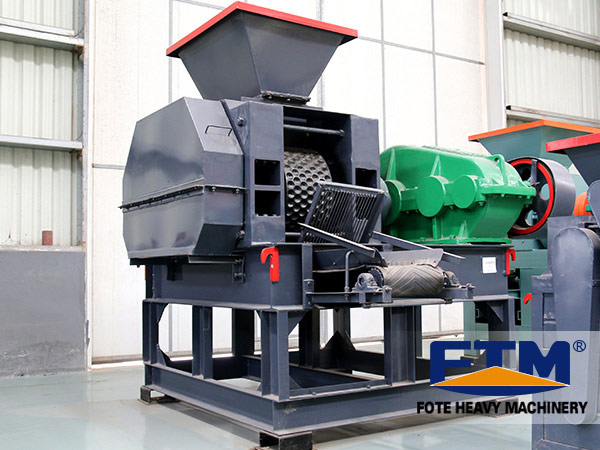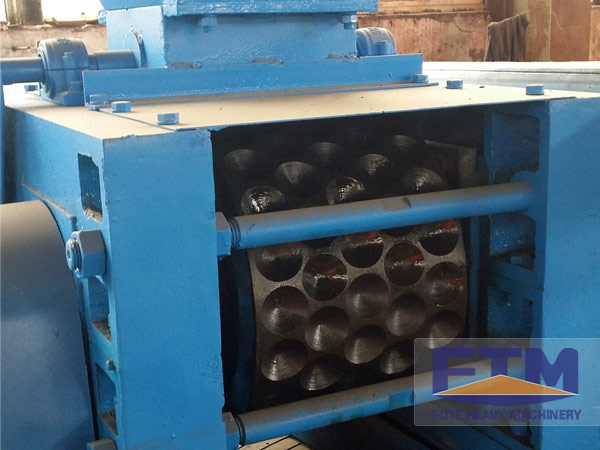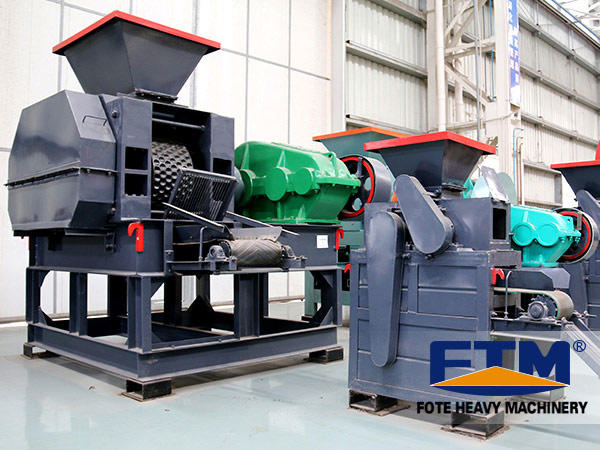NEWS
The Main Factors Affecting the Quality of Briquette
By: Fote MachineryAugust 14th,2021
The forming conditions of coal briquette include briquetting pressure, briquette moisture, binder type and ratio, mixing time and mixing method, material size and composition, curing method and coal briquette drying temperature, etc.
The main factors affecting its strength are the particle size and particle size distribution of the coal powder, the briquetting pressure, the moisture of briquette and the binder.

1. Coal particle size and particle size distribution
Coal briquetting is the process of coal particles agglomeration. The appropriate particle size and composition of the pulverized coal will affect the compactness between the pulverized coal and the total specific surface area of the pulverized coal.
- The influence of different coal grades and particle sizes on the strength of briquette
The higher the coalification degree of coal, the larger the micellar structure of coal. With the increase of elasticity and hardness of coal, the plasticity decreases, which will lead to different compressible space of coal particles of different coal grades.
Studies have shown that using a larger particle size for bituminous coal and anthracite can better stabilize the strength of briquette, while lignite requires a smaller particle size.
Under the pressure of briquette, the coal particles of high-rank coal are not easy to be broken, and the particle size can be appropriately increased, while the particle size of low-rank coal should be appropriately reduced.
2. Briquetting pressure
The briquetting pressure is the external pressure exerted on the coal powder, binder, water and other mixed materials in the coal briquette machine.
- The relationship between briquette pressure and crushing force
Increasing the pressure of the briquette will compress the pulverized coal to an extreme value. If the pressure continues to increase, the endurance of the pulverized coal will exceed the limit and breakage will occur. When the briquette pressure is greater than the limit of fine coal particles, coal splitting and rebound phenomena will occur, destroying the integrity of the coal particles, causing cracks in the briquette, and reducing the strength of the briquette.
The pressure of the briquette should be less than the crushing force of the coal particles, and the overall structure of the briquette is relatively complete and its strength is stable.

3. The moisture of briquette
- Method of adding moisture to briquette
There are two ways to add water to briquettes:
Mix the binder with coal powder, and then add moisture;
The coal powder is mixed with moisture, and then the binder is added.
The briquette that first mixes the binder with the coal powder and then adds moisture to the coal has better strength. This is because after the preferential moisture distribution, a water film is formed on the surface of the coal particles, thereby preventing the binder particles and the fine coal particles from contacting each other.
- The relationship between briquette moisture and briquette strength
Moisture plays a role of lubrication, compaction, heat conduction and hydration with the binder in the process of coal powder briquetting.
As the moisture of the briquette increases, the strength of the briquette first increases and then decreases. This is because water can bring tiny particles into the permeable pores, reduce the porosity, and make the coal particles dense and dense, while the excessive water film on the surface of the particles will make the coal powder swell and loosen.
There is an inflection point in the influence of briquette moisture and briquette strength, as the optimal briquette moisture treatment.

4. Binder
Choosing the right binder is the key to making coal from pulverized coal. Now, there are hundreds of briquetting binders.
Briquette binders can be roughly divided into three types: inorganic binders, organic binders and composite binders. Organic adhesives can be divided into two types: hydrophobic and hydrophilic.
- The characteristics of different binders
Inorganic binders can significantly increase the strength of the briquette, but increase the ash content of the briquette, and the cohesiveness is not high.
Organic binders will not increase coal ash, but have high sensitivity to strength and poor waterproof performance.
The composite binder can make up for the shortcomings and deficiencies of a single binder, so that the performance of the briquette can reach the best.
- The effect of binder addition and concentration on the strength of briquette
There are two ways in which the same binder affects the strength of briquette: a certain mass concentration and a certain concentration mass. The optimal binder concentration has the greatest influence on the strength of the briquette, and different concentrations of binder have different effects on the strength of the briquette.
Now FTM® briquette machine has been widely used in large and medium-sized enterprises all over the world. It saves a lot of resource consumption and economic cost for the enterprise. Welcome to consult with!

